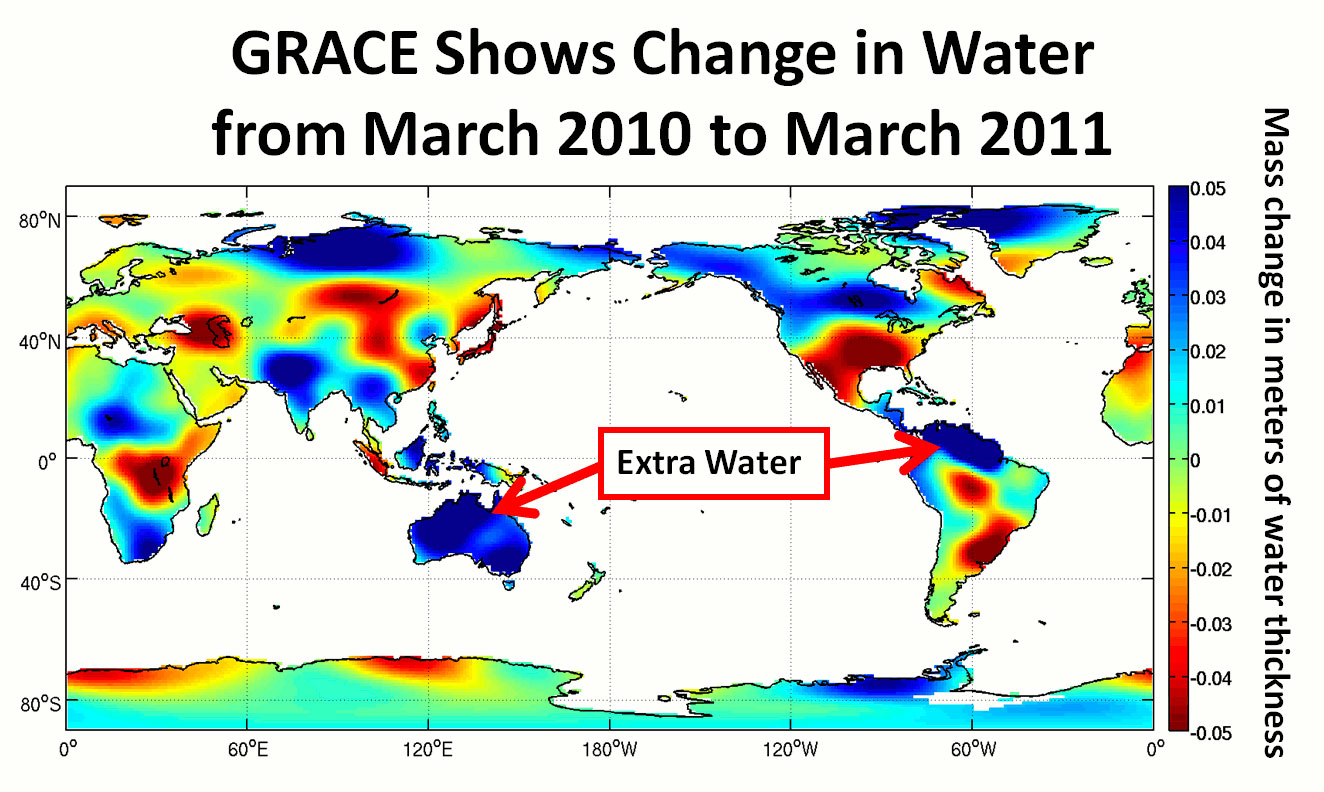Hiding the Incline in Sea Level
Posted on 15 November 2011 by dana1981
A number of climate not-so-skeptics have recently been exploiting global sea level data in their latest attempt to hide the incline. Skeptical Science readers will be very familiar with the tactics the "skeptics" use to make this argument:
- Cherrypick a very small amount of data during which the short-term noise has dampened the long-term incline
- Ignore the long-term trend
- Refuse to examine the reasons behind the short-term change
Climate "skeptics" have used this exact same strategy to hide the incline in global surface temperatures (here and here and here), lower troposphere temperatures (here), and ocean heat content (here and here). We've found that an effective way to reveal the deception of these arguments is with an animated GIF, comparing the long-term data with the short-term "skeptic" cherrypick. Figure 1 makes this comparison for the global mean sea level data during the satellite radar altimiter record (since 1993) from the University of Colorado. The first frame shows the entire record, the second shows recent periods of flat or declining mean sea level, and the third shows the most recent short-term decline.
Figure 1: University of Colorado global mean sea level data with a 12-month running average, and short-term declines.
Cause of Short-Term Decline
Figure 1 confirms that yes, global mean sea level has declined slightly over the past year or so, and even slightly more than previous recent declines. But a true skeptic should ask what has caused this short-term decline, especially since it appears counter-intuitive. After all, land-based ice continues to melt rapidly, and the oceans continue to warm rapidly (thermal expansion of ocean water contributes to sea level rise). So what has dampened the long-term sea leve rise illustrated in Figure 1?
As Skeptical Science has previously reported, climate scientists attribute the short-term decline to extreme flooding in 2010. This period also saw a strong La Niña cycle, which typically results in an increase of rain and snow falling over land, which corresponds with a fall in global sea level. The last 18 months has seen some epic deluges throughout the world; countries such as Pakistan, Sri Lanka, Australia, the Philippines, Brazil, Colombia, and the United States have been hammered with extreme flooding. Figure 2 illustrates where the water has gone.

Figure 2: Change in land-based global water storage in the period March 2010 to March 2011, as observed by GRACE gravity satellites. Image from NASA JPL.
Cherry-Flavored Water
In short, arguments that sea level rise has stopped are based on the same tired old "skeptic" tricks of cherrypicking short-term data and ignoring the long-term trend. We know that ocean warming and melting ice will cause sea level to rise over the long-term, and the only reason the sea level rise has temporarily slowed is that there was so much flooding in 2010 - hardly a result worth celebrating. As long as humans continue to warm the planet by increasing the amount of greenhouse gases in the atmosphere, we can expect the long-term sea level rise to continue.
Note: This post has been adapted into the Basic rebuttal to Sea level fell in 2010. Rob Painting previously published the Intermediate rebuttal.































 Arguments
Arguments































[DB] Please emulate the standards of this site. Inflammatory snipped.
[DB] See my admonition to Sailrick.
Also, be advised that sock-puppetry is a bannable offence here. The Comments Policy will be revised to reflect that. One presence per person should be sufficient for anyone.
[DB] "In fact, mean sea levels have actually decreased"
Defend this statement with a citation to a substantive source (reputable, not some "skeptic" blog). Add in the appropriate context for why this change is significant.
"Although linear trends don't necessarily make for very good long-term predictions"
Indeed, it is just the fake-skeptic blogs, like those you cite, that maintain this canard that SLR is, and will continue to be, linear.
If everyone can refrain from responding to this comment until Arkadiusz addresses the above points, I'd appreciate it.
[DB] "it needs to be treated as a cyclical anomaly"
Please share with us the scientific basis for this assessment.